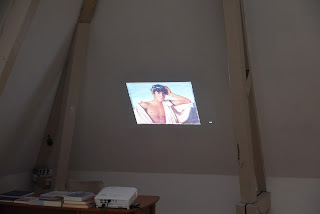Paul's House
at Konteksty Festival of Ephemeral Art in Sokołowsko, PolandFriday, July 18 2025, 18:30
The performance Paul's House by Philipp Gufler explores who owns the memory and history of artist Paul Hoecker (1854–1910). After having been almost entirely forgotten for over a century, the performance stresses the urgency to celebrate his work and legacy in Poland and Germany.
Paul Hoecker was an influential, long overlooked figure in the Munich art scene around 1900. As a painter, professor at the Academy of Fine Arts and co-founder of the Munich Secession, he was active in a phase of fundamental upheaval at the interface of tradition and modernism. After international success through his participation in the first three Venice Biennales and the World's Fair in Chicago, a scandal forced him to resign from his professorship in 1897 - caused by homophobic rumours about a painting of the Virgin Mary for which a male sex worker was the model. In the following years, he lived in self-imposed exile in Italy, on Capri and in Rome, before returning to his birthplace of Oberlangenau (now Długopole Górne) in Silesia in 1901.
Together with Stefan Gruhne, Nicholas Maniu and Christina Spachtholz, Philipp Gufler is part of the Paul Hoecker Research Group at the self-organized Forum Queeres Archiv München since 2019. One aim of the research group is to draw attention to Paul Hoecker's work and life outside Germany, particularly in his birthplace, today's Poland. Paul Hoecker immortalised his birthplace in several paintings. In April 2025, Philipp Gufler visited the Hoecker-House.
Paul's House describes the life and work of Paul Hoecker as a shared German-Polish queer history. At the Konteksty Festival in Sokolowsko near Długopole Górne, Philipp Gufler will be showing a performance about his artistic exploration of Paul Hoecker's birthplace.




























